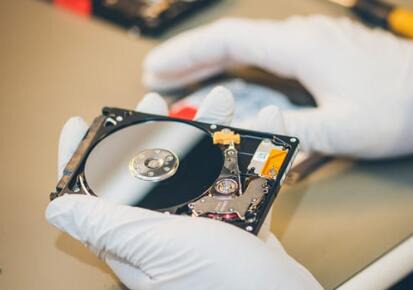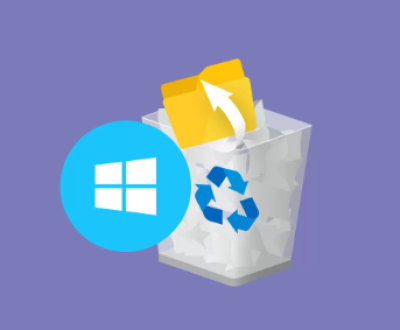Data is the lifeblood of modern personal and business activities. Whether it’s precious family photos, critical business documents, or essential software systems, losing access to your data can be devastating. San Francisco, as a major tech hub, is home to numerous professional data recovery services dedicated to helping individuals and businesses restore their lost digital information.
Common Causes of Data Loss
Accidental Deletion: Users may unintentionally delete files or format drives, thinking data is no longer needed.
Physical Damage: Hard drives and SSDs can be damaged by drops, spills, electrical surges, or wear and tear.

Logical Failures: File system corruption, malware infections, or software bugs can render data inaccessible.
Mechanical Failures: Hard drives contain moving parts that may fail, such as the read/write head or motor.
Power Outages: Sudden power loss during write operations can cause data corruption.
Natural Disasters: Fire, flood, and other catastrophes can physically destroy storage devices.
Human Errors: Formatting the wrong disk, improper handling, or using unreliable software can lead to loss.
What Are Data Recovery Services?
Data recovery services specialize in restoring data from damaged or inaccessible storage media. This includes:
Hard Disk Drives (HDDs)
Solid State Drives (SSDs)
USB flash drives
Memory cards (SD cards, microSD cards)
RAID arrays and servers
Optical discs (CDs, DVDs)
Mobile devices
They use a combination of hardware, software, and expert knowledge to retrieve your files when conventional methods fail.
Why Use Professional Data Recovery Services in San Francisco?
San Francisco’s tech ecosystem means many options are available, but professional services stand out for these reasons:
Expertise and Experience
Experienced technicians understand the intricacies of various storage devices and data loss scenarios. They have seen hundreds of cases and know what tools and procedures work best.
Clean Room Facilities
For physically damaged drives, opening the device in a cleanroom environment is critical to avoid dust contamination, which can further damage delicate components.
Advanced Tools
Specialized equipment like disk imaging tools, firmware repair kits, and proprietary software allow professionals to recover data beyond what off-the-shelf software can handle.
Confidentiality and Security
Reputable services maintain strict confidentiality protocols, ensuring sensitive data is handled securely.
Success Rate
Professional recovery labs have a higher success rate in retrieving data than DIY solutions, especially in complex or physical damage cases.
Data Recovery Process Overview
Though every case is unique, professional data recovery services generally follow a structured process:
Step 1: Initial Evaluation
You either drop off your device or send it by courier. The service provider examines the device to diagnose the type and extent of damage.
Step 2: Diagnostic Report and Quote
The lab runs tests to determine recoverability, then provides a no-obligation quote detailing the estimated cost, time frame, and recovery chances.
Step 3: Approval and Work Commencement
Once you approve, technicians begin the recovery process using a combination of techniques suited to your device and failure type.
Step 4: Recovery Process
This may include cloning the drive to prevent further damage, repairing firmware or hardware components, rebuilding file systems, and extracting data using specialized software.
Step 5: Verification and Quality Check
Recovered data is checked for integrity and completeness.
Step 6: Delivery of Recovered Data
Data is returned via external drives, secure downloads, or cloud storage, depending on your preference.
Common Data Recovery Scenarios in San Francisco
San Francisco’s diverse industries—from tech startups to creative agencies—face various data loss situations. Here are some typical examples:
1. Hard Drive Failure in Tech Startups
With extensive data flow and high usage, hard drives may fail mechanically or logically. Recovery involves delicate disassembly and repair or deep software analysis.
2. SSD Corruption from Firmware Issues
SSDs use complex firmware; failure here often locks data access. Experts can reprogram or repair firmware chips to regain data.
3. RAID Array Failures for Enterprises
RAID systems protect data by redundancy, but multiple drive failures or controller issues require reconstructing data across drives—a task for seasoned professionals.
4. Accidental Deletion or Formatting by Creatives
Designers and videographers frequently deal with accidental formatting or deletion, requiring quick recovery before new data overwrites the lost files.
5. Mobile Phone Data Recovery
Smartphones are susceptible to software corruption, screen failures, or water damage. Specialized labs recover contacts, messages, photos, and app data.
How Do San Francisco Data Recovery Labs Handle Physical Damage?
Physical damage is among the most challenging scenarios. Labs in San Francisco typically have:
ISO-certified cleanrooms: Ultra-clean environments with controlled airflow.
Precision tools: Microscopes, arm replacements, and chip readers.
Firmware specialists: Experts who handle corrupted or damaged firmware chips.
Imaging devices: To create exact copies of failing drives for safe analysis.
Physical recovery involves carefully opening the drive, replacing damaged parts, and imaging the data before performing logical recovery.
Technologies and Techniques in Use
San Francisco labs stay at the cutting edge by employing:
Disk Imaging: Making sector-by-sector copies to protect original media.
Hex Editors: To manually inspect and repair corrupted data structures.
File Carving: Recovering files without relying on file systems, useful for formatted or damaged disks.
Firmware Repair: Fixing or replacing the controller’s firmware.
RAID Reconstruction Software: Simulating RAID arrays to piece together data.
SSD-Specific Tools: To deal with garbage collection and TRIM commands.
Choosing the Right Data Recovery Service in San Francisco
With many options, picking the right provider can be tough. Consider these criteria:
Reputation and Reviews
Look for companies with excellent customer feedback and proven track records.
Certification and Expertise
Verify if technicians hold certifications such as Certified Data Recovery Professional (CDRP).
Cleanroom Facilities
Ensure the lab has genuine Class 100 or better cleanroom environments.
Transparent Pricing and Policies
Avoid companies with hidden fees or ambiguous policies. Choose those offering free diagnostics and no data, no charge guarantees.
Turnaround Time
Depending on urgency, ask about average completion times and if expedited services are available.
Confidentiality Guarantees
Especially for business clients, ensure data privacy compliance and secure handling.
Cost Factors of Data Recovery Services
Prices vary widely based on:
Type of device
Nature of damage (logical vs physical)
Data volume and complexity
Urgency of service
Typical ranges can be from a few hundred dollars for simple logical recoveries to thousands for complex physical damage or RAID rebuilds.
What You Should Do If You Experience Data Loss
Stop using the affected device immediately. Continuing to write data risks overwriting lost files.
Don’t attempt DIY fixes unless experienced. Poor attempts can worsen damage.
Back up data regularly to avoid future loss.
Choose a reputable San Francisco data recovery service promptly.
Provide detailed information about what happened to assist diagnosis.
San Francisco Specific Considerations
San Francisco is a tech-forward city, meaning:
You have access to state-of-the-art labs.
Many companies offer onsite services or emergency pick-up.
Some providers specialize in particular sectors like startups or media.
You can find labs with bilingual support or specific compliance certifications (HIPAA, GDPR).
Data Recovery and Beyond: Preventative Measures
After recovery, take steps to protect your data:
Use cloud backup solutions (Google Drive, iCloud, Dropbox).
Set up automated backups to external drives.
Employ surge protectors and UPS devices.
Regularly update software and security measures.
Educate staff and users about safe computing habits.
Data recovery services in San Francisco offer a crucial safety net for personal and professional data loss. With advanced technologies, cleanroom environments, and skilled technicians, these labs maximize the chances of getting your data back intact.
About us and this blog
Panda Assistant is built on the latest data recovery algorithms, ensuring that no file is too damaged, too lost, or too corrupted to be recovered.
Request a free quote
We believe that data recovery shouldn’t be a daunting task. That’s why we’ve designed Panda Assistant to be as easy to use as it is powerful. With a few clicks, you can initiate a scan, preview recoverable files, and restore your data all within a matter of minutes.

 Try lt Free
Try lt Free Recovery success rate of up to
Recovery success rate of up to









